If you want to make your fat loss meals taste good and control the calories, it is necessary to know all the ingredients around you. Today, we will introduce you to some common foods and their calorie ratios.
Coarse grains
Quinoa (cooked)
Calories: 120 kcal/100g
Quinoa is highly rated in European and American fat loss circles and is one of the popular fat loss foods. Quinoa is rich in dietary fiber and protein, both of which provide a longer period of satiety. Quinoa can be eaten in a variety of fancy ways to make fat loss meals a lot of fun, for example, it can be served with vegetables for salads or with other grains and cereals to make a bowl of delicious mixed rice.
Oat noodles (cooked)
Calories: 376 kcal/100g
Avena sativa has high protein, low carbohydrate characteristics, long-term consumption of oat can reduce blood insulin levels, thereby suppressing hunger and reducing the chances of eating extra.
Buckwheat noodles (cooked)
Calories: 304 kcal / 100 g
Buckwheat is richer in iron, manganese, zinc, and other trace elements than the average grain, it is rich in dietary fiber is several times the refined white rice, and buckwheat is rich in niacin can promote human metabolism, speeding up the body detoxification.
Vegetables
Bitter melon
Calories: 17 kcal / 100 g
Bitter melon is super low in calories, which can reduce part of the bitter melon vegetarian food intake of fat and polysaccharide carbohydrates, very helpful for weight loss. Besides, eating bitter melon in summer has a detoxifying, cooling, and anti-heat effect.
Tomato
Calories: 20 kcal/100g
Tomatoes contain a lot of dietary fiber, which promotes intestinal peristalsis, and it also contains a lot of lycopene, one of the strongest antioxidants found so far. The redder the tomato, the more lycopene it contains.
Lettuce
Calories: 27 kcal/100g
Lettuce contains a substance called mannitol, which improves blood circulation. Lettuce also contains a lot of dietary fiber, which helps metabolized toxic elements to be excreted from the body as soon as possible.
Fruits
Blueberry
Calories: 57 kcal/100g
The polyphenols in blueberries can inhibit the production of fat. Also, blueberries are rich in anthocyanins, which are antioxidants.
Dragon fruit
Calories: 51kcal/100g
Dragon fruit has a high dietary fiber content, which can provide a longer period of satiety. Another carotenoid regulates the balance of the body, which can effectively reduce the concentration of sugar in the blood and control the appetite.
Lemon
Calories: 35 kcal/100g
Lemon has the highest vitamin content among fruits, and it also has a unique citric acid to promote intestinal digestion and help better absorb food.
Meat
Chicken breast (cooked)
Calories: 125 kcal/100g
Chicken contains a whopping 19.3 grams of protein per 100 grams and only 2.3 grams of fat! Chicken breast has a slim muscle structure and is easily digested and absorbed. Eating a little chicken breast properly is good for muscle synthesis and there is no risk of gaining weight.
Lean pork (cooked)
Calories: 201 kcal/100g
Not all pork is fatty, lean pork has an even higher protein content than chicken breast. Maybe you are worried about the fat of pork, in fact, there are only 6 grams of fat per 100 grams of lean pork. The amount of fat in cooked pork is also reduced after cooking and stewing.
Beef (cooked)
Calories: 211 kcal/100g
Beef contains more essential amino acids in its protein and is low in fat, making it highly nutritious and suitable for people with a large weight base or those with "three highs".
Fish (cooked)
Calories: 123 kcal/100g
The fat content of fish is mostly 1%-4%, and most of it is healthy unsaturated fatty acids. The protein structure of fish is loose and easy to be digested and absorbed by the body.
In fact
As long as you achieve a balanced nutrition
Control the calorie content of a meal
You can also mix and match a perfectly healthy fat loss meal at your fingertips.
And to meet the balanced nutrition
Protein, carbohydrates, lipids, vitamins, minerals, dietary fiber, and water
No one of the seven nutrients should be missing
Here are some recommendations for you to mix and match
Carbohydrates
(Choose 3 servings per day, preferably 1 of each)
Section A
Sorghum rice: 100g
Millet rice: 100g
Cornmeal: 100g
Section B
Oatmeal porridge: 100-200g
Yam porridge: 100-200g
Beans porridge: 100-200g
Section C
Purple potato: 100g
Corn: 200g
Pumpkin: 250g
Protein
(Choose 3 servings per day, preferably 1 serving of each)
Section A
Fresh milk: 300 ml
Low-fat yogurt: 300 ml
Soy milk: 300ml
Section B
Beef: 60g
Chicken breast: 60g
Salmon: 75g
Pork lean meat: 60g
Section C
Egg: 50g
Tofu: 50g
Soy: 25g
Dietary fiber, vitamins, and minerals
(Choose 3 servings per day, preferably 1 of each)
Section A
Dark leafy vegetables (e.g. spinach, broccoli): 150 g
Light-colored leafy vegetables (e.g. cabbage, coleslaw): 150 grams
Section B
Colored vegetables (green and red peppers, tomatoes): 150 grams
Section C
Apple: 1
Pear: 1
Banana: 1
Fat
(25-30g per day)
Peanut oil
Sunflower oil
Olive oil
PS: Unhealthy cooking oils can cause excessive fat intake. Please carefully select a variety of cooking oils to meet the need for essential fatty acids.
The right choice for extra meals
If you are a working person who needs to stay up late, then you need to eat a little something to replenish your energy properly in addition to your three meals. Here are some healthy snacks that can relieve hunger and maintain your figure.
Nonfat yogurt
Nonfat yogurt contains a considerable amount of protein, and the low sugar and low-fat feature make nonfat milk does not affect the blood sugar level, so it is very resistant to hunger.
Sweet potatoes
Sweet potatoes are low in calories and satiating, with 2.2 grams of dietary fiber per 100 grams, which has a good stimulating effect on intestinal motility.
Banana
Bananas are very low in calories, but they are rich in dietary fiber, which can relieve hunger. Bananas also contain nutrients such as vitamin B, C, calcium, and magnesium. Eating bananas an hour before bedtime also has the effect of helping to fall asleep.
Green beans
Mung beans contain 21.6 grams of protein per 100 grams. Mung beans also have a detoxifying effect, which enables toxins to be eliminated from the body as soon as possible and facilitates weight loss.
-END-





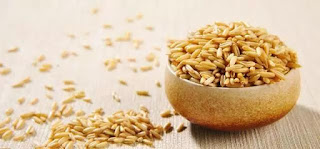
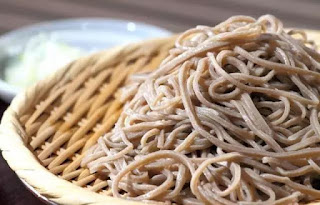
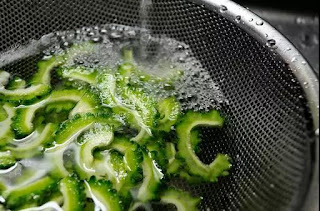
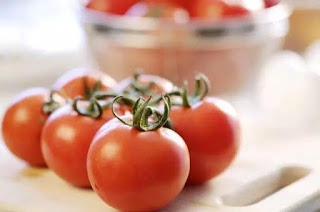



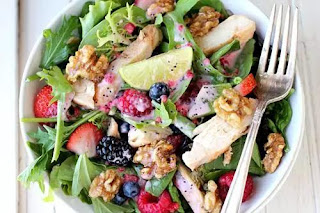
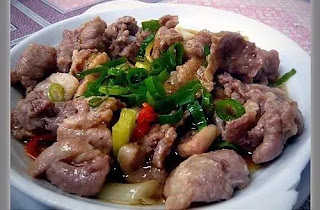



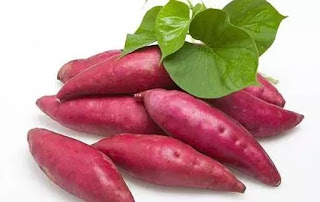

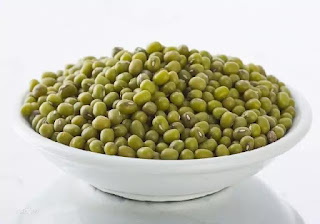


No comments:
Post a Comment